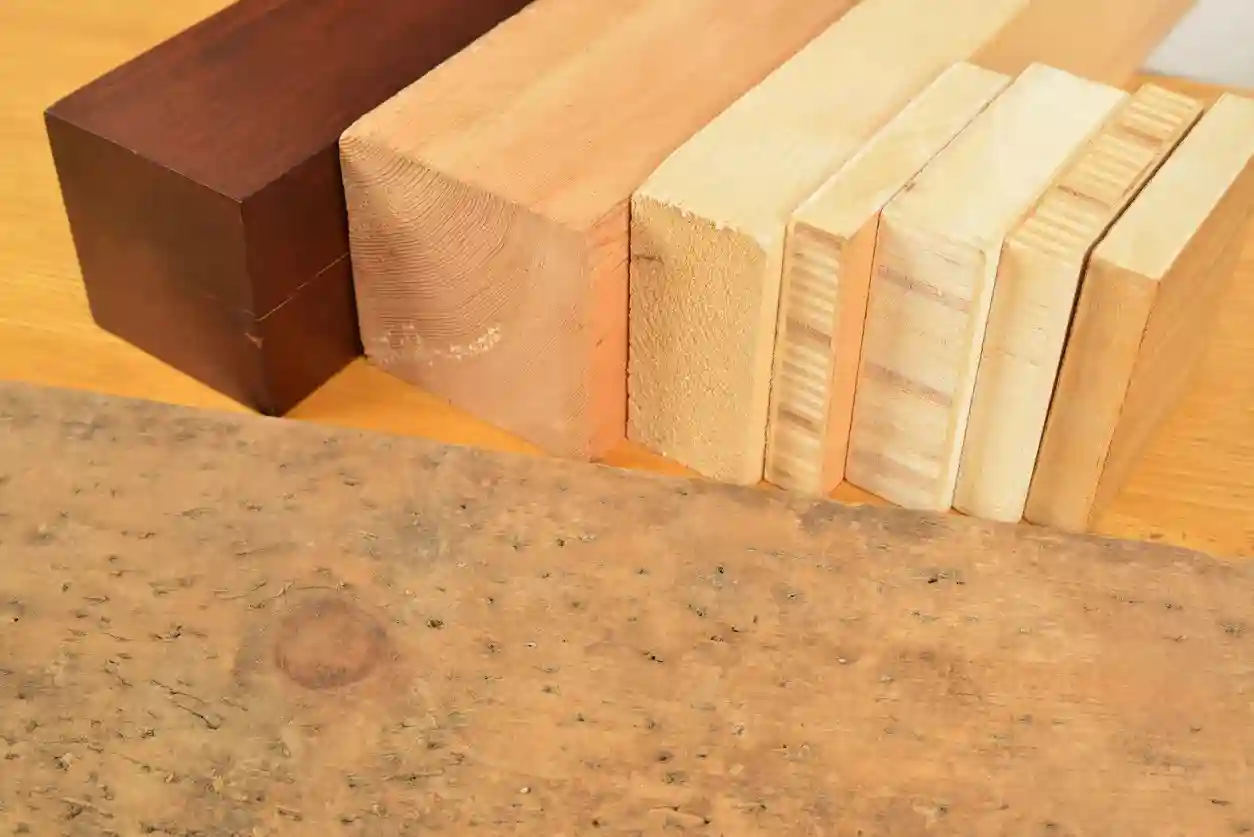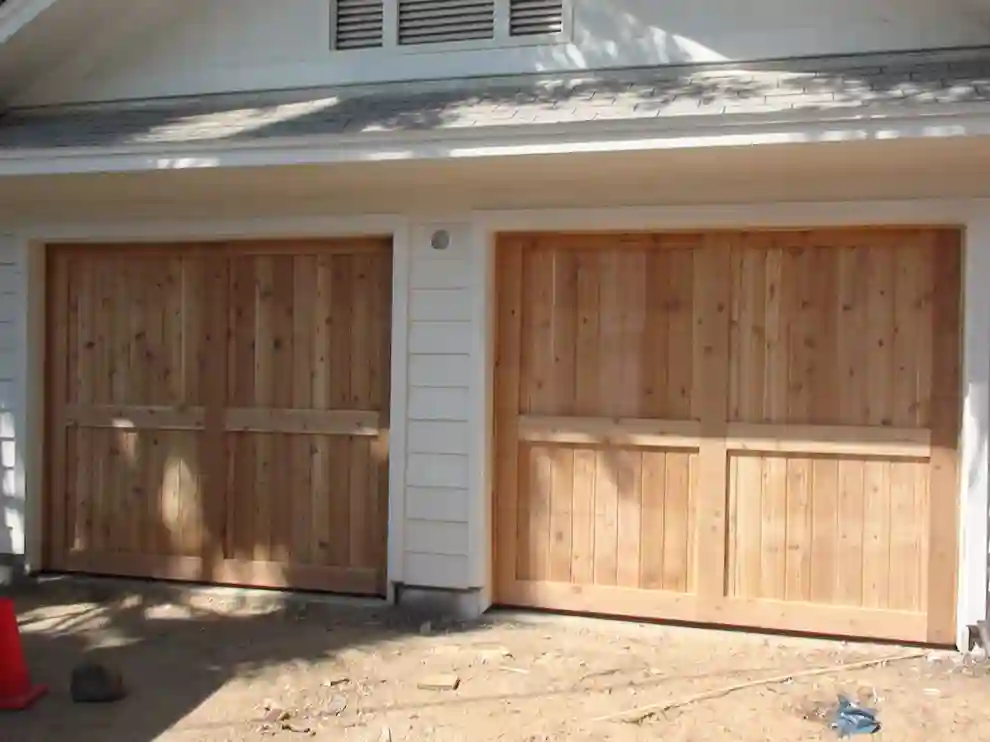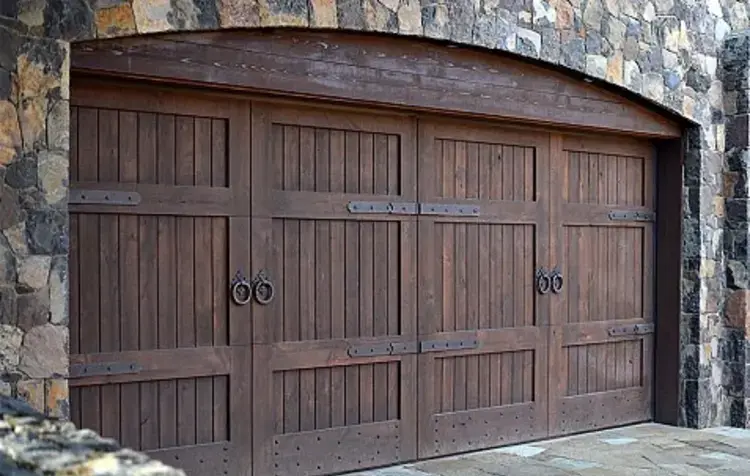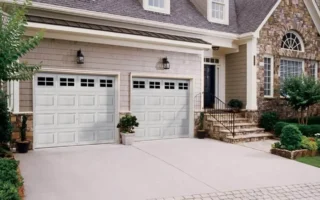An attractive wood garage door combines functionality with craftsmanship. The unique manufacturing process results in doors that enhance curb appeal and provide durability and security. Each type of wood brings its charm and character, allowing homeowners to choose based on aesthetic preference and practical needs. Wood garage doors have advantages, like insulation properties and customization options, but they also require regular maintenance to keep them looking their best.
Modern materials like steel or fiberglass offer low-maintenance solutions with various styles for those exploring alternatives. They may lack the warmth that comes from genuine wood. You opt for a traditional wooden door or another material, and making an informed decision will lead you to a choice you’ll be satisfied with for years to come.
The Materials Used in Wood Garage Doors

Wood garage doors are crafted from several materials, each contributing to their aesthetic appeal and durability. The primary material is, of course, wood itself. There are a variety of wood types to choose from, including cedar, oak, and mahogany.
Cedar is popular for its natural resistance to decay and insects. It’s lightweight yet sturdy, making it an excellent choice for many homeowners. Oak provides a classic look with incredible strength but may require more maintenance.
Mahogany stands out for its rich color and luxurious finish. Its density makes it less prone to warping or cracking. In addition to wood, manufacturers often use insulation materials like polystyrene or polyurethane within the door’s structure. This enhances energy efficiency while maintaining the door’s integrity against weather changes.
The Manufacturing Process of Wood Garage Doors
The manufacturing process of wood garage doors begins with selecting high-quality timber. Separately, the piece is carefully inspected for flaws and grain patterns, ensuring durability and aesthetic appeal.
Once the wood is chosen, advanced machinery cuts it into precise dimensions. The precision ensures that each component fits together perfectly during assembly. After cutting, the pieces are shaped and joined together. Skilled artisans often use traditional joinery techniques to enhance strength while maintaining a classic look.
Next comes sanding to create a smooth finish. This step prepares the surface for staining or painting, allowing for customization according to homeowner preferences. Protective coatings are applied to guard against moisture and UV damage.
Types of Wood Used and Their Characteristics

When it comes to wood garage doors, the choice of wood significantly impacts aesthetics and durability.
- Due to its natural decay resistance, cedar is a very popular option. Its rich grain patterns add warmth and character, making it visually appealing.
- Redwood shares similar qualities but tends to be more expensive. It also offers excellent weather resistance, ensuring longevity even in harsh climates.
- Pine is another common choice because it’s affordable and easy to work with. However, it requires more maintenance than cedar or redwood since it’s softer and susceptible to dents.
- Mahogany stands out for its striking appearance and durability. This hardwood can withstand various environmental factors while providing a luxurious finish that elevates any home’s exterior.
- Douglas Fir combines strength with an attractive grain pattern. It’s often used for custom designs, balancing cost-effectiveness with beauty perfectly.
Pros and Cons of Wood Garage Doors
Wood garage doors have a distinct charm that enhances the curb appeal of any home. Their natural beauty and variety of designs can complement various architectural styles, making them a favorite for many homeowners.
They come with some drawbacks. Wood is susceptible to weather elements, leading to warping or cracking if not properly maintained. Regular upkeep, like painting or sealing, is essential.
On the positive side, wood provides excellent insulation compared to metal alternatives. This can help regulate your home’s temperature and reduce energy costs.
Yet another consideration is cost; wood doors often carry a higher price tag than their steel counterparts. While they offer elegance and warmth, potential buyers must weigh these factors carefully before deciding on their garage door choice.
Maintenance and Care for Wood Garage Doors

Wood garage doors require regular attention to keep them looking great and functioning well. Start by inspecting the door for any signs of damage or wear, such as cracks or peeling paint.
Cleaning is essential. Use a soft cloth and mild soap to wash the surface. Avoid harsh chemicals that might harm the wood finish.
It’s crucial to check for moisture buildup, which can lead to rot. Ensure proper drainage around the garage area, and apply a sealant every few years.
In order to maintain smooth operation, keep hinges and tracks lubricated on a regular basis. This simple step helps prevent squeaks and extends their lifespan.
Staining or painting enhances appearance and provides an extra layer of protection against elements. Select outdoor products made from high-quality materials.
Be vigilant about pests like termites that compromise your door’s integrity over time. Regular inspections will help catch issues before they escalate.
Alternatives to Wood Garage Doors
If wood garage doors aren’t the right fit for you, several alternatives exist. One popular option is steel. It offers durability and strength while requiring minimal maintenance.
Vinyl garage doors are another choice, known for their resistance to dents and rust. They come in various styles and colors, allowing homeowners to customize their look without sacrificing functionality.
Fiberglass doors can mimic the appearance of wood but with enhanced weather resistance. This makes them an excellent choice if you’re looking for aesthetics combined with longevity.
Aluminum is lightweight and resistant to corrosion, making it suitable for coastal areas or regions with high humidity. Apiece alternatives have unique benefits that cater to different needs and preferences.


